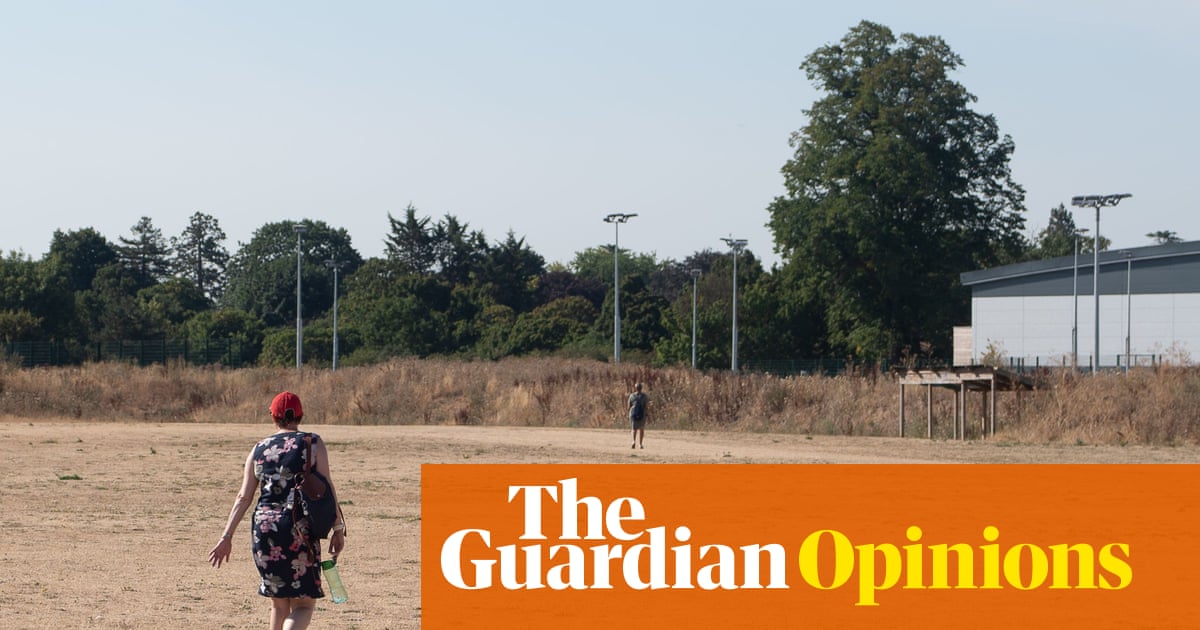Britain’s four-day heatwave – made100 times more likelyby the climate crisis – is expected to claimabout 600 lives. Researchers say high temperatures from Thursday to Sunday would lead to a sharp rise in excess mortality, especially among older people in cities such as London and Birmingham. They forecast the deadliest day as Saturday, with temperatures above 32C and about 266 deaths. These are not abstract figures, but lives cut short by a threat we understand, yet remain unprepared for.
Young people seem to grasp this. In a YouGov poll lastweek, roughly a quarter of 18- to 24-year-olds said they hoped there wouldn’t be a heatwave – while more than two-fifths of older people welcomed the sunshine. That generational split isn’t just cultural. It reflects an entirely rational anxiety: younger people face a future living in a climate emergency. The generation that caused and benefited from the conditions driving global heating will be gone long before the worst costs – financial, environmental, social – have to be paid.
The effects are already here. In 2022, almost a fifth of UK hospitals were forced to canceloperationsduring the three days when temperatures soared highest because NHS buildings could not cope with the heat. That was a summer of hosepipe bans and wildfires. A year later, floods caused by extreme rainfall contributed to a third of all UK train delays, according tocampaignersat Round Our Way. From drought to downpour, climate chaos is driving up food prices – UK-farmed carrots and lettuce now cost athirdmore than two years ago. For Britons, climate breakdown is felt not in the disappearance of distant ice caps but postponed appointments, cancelled trains and bigger shopping bills.
Britain, warn the government’s own advisers on theClimate Change Committee, is not institutionally ready. There’s no national adaptation budget, no cross-government plan and no clearaccountof what’s even being spent. The recent spending review proves the point. While there is a modest rise in flood defence funding to £1.4bn a year, the Treasury ignored calls, notably from experts at the London School of Economics’Grantham Institute, for a joined-up approach, leaving key risks – health, infrastructure, food security – unfunded and uncoordinated.
And the cost of doing nothing is mounting. The investigative campaigners Global Witnesscalculatethat in 2025 UK households face a £3,000 bill in climate-related costs. But the solutions exist. The LondonClimate Resilience Reviewlays out the blueprint: heat plans, flood protection, NHS retrofits and early-warning systems. The review led to the capital conducting a disaster training exercise, OperationHelios, to test its readiness for extreme heat. Other metro mayors are looking at London as a model.
According to Labour’smanifesto, preparing for the future means Britain adapting to big shifts in climate and nature. There has been some positive change. The government’sinfrastructure strategytalks about climate resilience for new capital stock. But plans need funding, not just fine words. The UK requires a national adaptation budget, drawn together by central government but managed and transparently delivered locally. TheOffice for Budget Responsibilityrecognised during the pandemic that emergency spending on the climate was affordable. It still is. What’s coming is no mystery. What works is already known. What’s missing is the willingness at the heart of government to act in a purposeful way.
